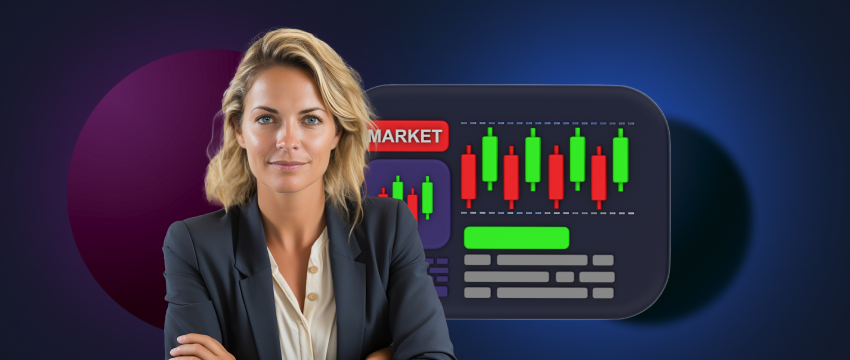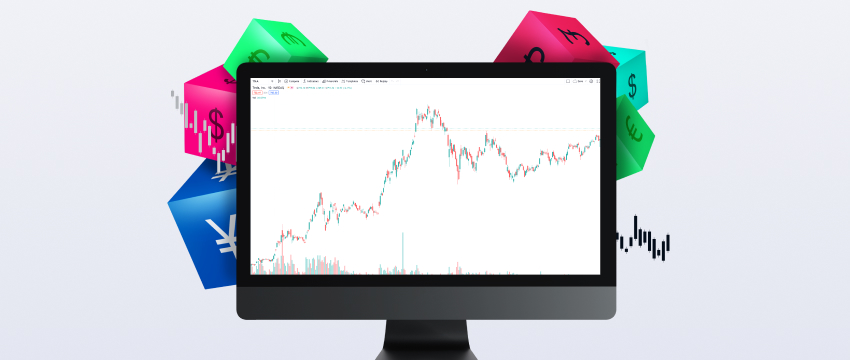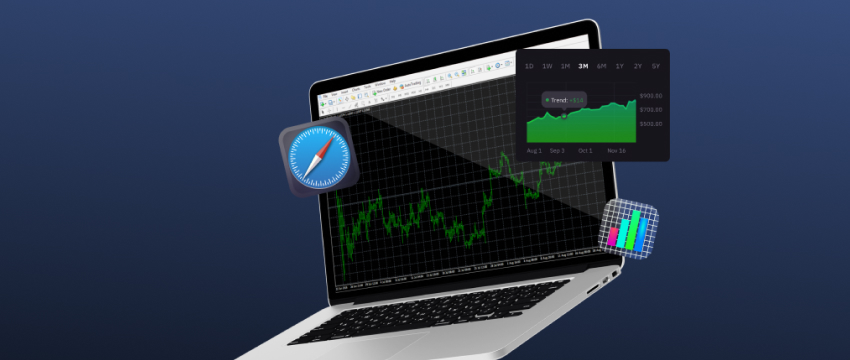Professional forex traders aim to make profits by speculating on currency movements in the forex trading market. Unlike beginners, professional traders often earn more, sometimes making trading their primary source of income.
Also, professional traders use more advanced trading tools compared to those used by beginner traders. Trading in the forex market is highly volatile, so effective risk management is essential in order to avoid large losses.
Developing a skill set that is continuously improved is necessary to become a successful professional forex trader.
In this article, we’ll explore what it takes to become a professional trader.
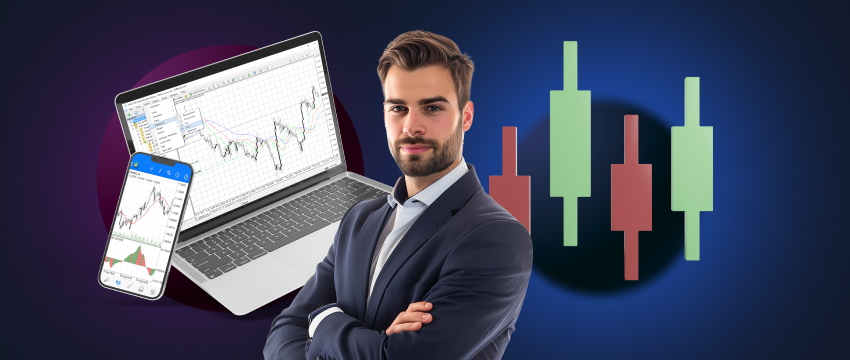
How to become a professional forex trader
1. Set realistic forex trading goals
Professionals set achievable and measurable goals. For example, they could set goals like a 15% return on their investment, make $25,000 in profit, or gain 50 pips a week.
However, it’s important to focus on long-term objectives, such as annual targets, since performance and income can fluctuate from month to month.
A key characteristic of a professional forex trader also includes being realistic. They understand they won’t make millions if they start with a few thousand dollars, even when using leverage.
Professionals also ensure that their trade size align with their risk tolerance. Once you have clear goals, you can look at the strategies and tools needed to achieve them.
2. Test تداول العملات الأجنبية strategies
Being a professional forex trader involves using well-refined strategies. But a common misconception is that professionals rely solely on complex techniques.
In fact, many successful traders earn substantial incomes using simple systems, including the ones outlined below:
التحليل الفني
To become a professional, you need to learn technical analysis, especially in day trading when you’ll be making multiple trading decisions in a single day.
Technical analysis is an essential skill to have as a professional day trader. It helps in identifying trading opportunities by analysing factors such as price movements and volume, and it also takes historical trading data into account.
Technical analysis can be applied to various financial instruments, including الأسهم, العملات, السلع, etc. But it is more commonly used in forex or commodities trading where the main focus is on short-term price fluctuations.
Technical indicators
Technical indicators are mathematical tools. They use opening and closing prices, along with volume, to speculate on the movement of financial instruments or assets.
Technical analysts use these technical indicators to assess the value of a particular instrument or asset. These indicators help traders optimise their trades.
Professional forex traders must understand these indicators well to become skilled in reducing trading risk and avoiding large losses. This means knowing how to properly interpret the data they generate and apply it to trading decisions.
Some of the most commonly used technical indicators include:
- Moving average indicator
- Momentum indicators
- Support and resistance levels
- Volatility indicators
Fundamental analysis
In contrast to technical analysis, becoming skilled in fundamental analysis is essential for a long-term approach to analysing data, whether over several months or years.
Fundamental analysts look at a company’s earnings, assets, liabilities, and expenses, in addition to more general industry and economic data, over a specific period, before deciding to invest in stocks.
For professional swing traders and position traders who use a combination of technical and التحليل الأساسي, the ability to effectively apply both methods is key to achieving trading success.
Automated trading
Many professional retail forex traders rely on automated algorithms to automate their strategies, executing trades with precision and speed that manual trading can’t match.
These systems are typically flexible enough to adapt to sharp market fluctuations and allow investors to monitor and execute positions around the clock, allowing them to focus on other areas.
Automated trading systems, also referred to as algorithmic trading, involves the use of an algorithm to execute trades according to predetermined criteria. The system allows traders to establish specific rules for both trade entries and exits.
Once these are programmed, they can be automatically executed via a computer. Automated trading increases trading uptime, minimising the impact of emotions during the trading process and faster execution.
3. Never stop learning
إن forex market is one of the most active financial markets in the world, with a daily trading volume of US$6 trillion. To participate successfully without risking significant losses, you need a solid understanding of the complexities involved in forex trading.
One of the most important ways to do this is through continuous learning. No matter how skilled you are at trading forex, staying informed and educated is essential.
This means using any educational resources available to you, such as videos, articles, ندوات عبر الإنترنت, e-books, etc. Stay updated on the various tools for trading and analysis, research different forex trading strategies, and optimise your own strategies accordingly.
4. Trading goals
Regardless of your expertise as a professional forex trader, setting specific goals is an important part of successful forex trading. Goals guide your trading decisions, offering direction and a clear target to work towards.
They also form the basis of a professional trading strategy, allowing you to more effectively assess performance, manage risk, and track profitability from month to month.
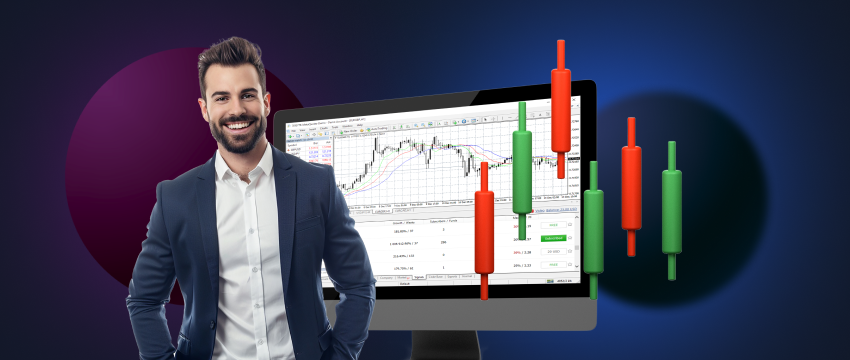
5. Managing risk
Forex trading requires a specific level of risk tolerance due to the market’s highly volatile nature and the potential for capital loss if risk is not properly managed. Professional traders usually have a risk management strategy in place based on their trading goals or style of trading.
This strategy aims to quantify potential risk, making losses measurable, and identifies the tools a trader must use to minimise risk (e.g., stop-loss or take-profit orders, or trailing stops).
In addition to having a well-defined strategy, professional forex traders understand the importance of being cautious and disciplined when making trading decisions.
6. Choosing a reputable CFD forex broker
A professional forex trader thoroughly researches a pool of reputable forex brokers before selecting one, as the right broker plays a vital role in providing the tools and knowledge necessary for making informed trading decisions.
Key criteria for choosing a reputable broker include:
- Availability of educational resources
- Quality of customer support across all channels
- Features and functionalities of their trading platform (market analysis, charting capabilities, trade automation, customisations, etc.)
- Insights into global economic markets and geopolitical news and events
7. Making use of a demo account
A demo account offers professional forex traders a way to test and refine their trading strategies.
It simulates a real trading environment, allowing traders to practice and enhance their trading skills in real-time using virtual money.
The demo account provides essential market data and insights, indicating potential profits and losses as if trading with real funds.
8. Monitor trades
To advance as a professional forex trader, regularly monitor your trades over a set period to collect historical data.
Analyse this data to assess how your trades have performed and identify the reasons for their success or failure.
Review your trading decisions and reflect on the outcomes. Use these insights to determine if adjustments to your trading strategy are required to enhance your trading success.

In conclusion
To improve your forex trading skills, open a demo account with T4Trade to practice your trades.
Additionally, explore T4Trade Education for a wide range of educational resources designed to boost your trading skills and to help you become a more proficient trader.
إخلاء المسؤولية: هذه المواد مخصصة للأغراض الإعلامية والتعليمية العامة فقط ولا ينبغي اعتبارها نصيحة استثمارية أو توصية استثمارية. T4Trade ليست مسؤولة عن أي بيانات مقدمة من أطراف ثالثة مشار إليها أو مرتبطة برابط في هذا الاتصال.
